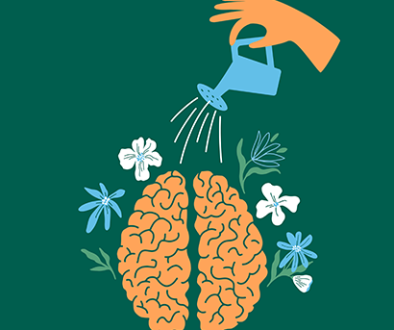The Effects Parents Have on Mental Health
Parents play a critical role in shaping a child’s emotional and psychological development. From the moment a child is born, parental actions, attitudes, and behaviors create the foundation for how children perceive themselves, form relationships, and cope with stress. The influence parents have on their children’s mental health extends well into adulthood, affecting not only how children view the world but also how they navigate challenges and manage emotions.
This article explores how various parenting styles, behaviors, and family dynamics impact children’s mental health, both positively and negatively.
Positive Effects of Parental Influence on Mental Health
Parents who provide a nurturing and supportive environment can greatly contribute to their children’s psychological well-being. Some of the key positive influences include:
1. Emotional Support and Validation: Children who grow up in homes where their emotions are acknowledged and validated tend to develop better emotional regulation skills. When parents listen to their children, empathize with their feelings, and offer guidance, children learn that it’s safe to express emotions, which fosters strong self-esteem and mental resilience.
2. Secure Attachment: Children who form a secure attachment with their parents—meaning they trust their caregivers and feel safe in their presence—tend to have better mental health outcomes. Secure attachment promotes emotional security, confidence, and social competence. These children are more likely to develop healthy relationships, experience less anxiety, and have lower rates of depression.
3. Modeling Healthy Behaviors: Parents serve as primary role models for their children. When parents exhibit healthy behaviors, such as managing stress effectively, maintaining positive relationships, and practicing self-care, children are more likely to adopt similar coping mechanisms. These healthy behaviors can protect against mental health issues like anxiety, depression, and stress-related disorders.
4. Establishing Boundaries and Structure: While giving children autonomy is important, clear boundaries and consistent structure are essential for their mental well-being. Parents who provide guidance and set reasonable expectations foster a sense of security and stability, which helps children feel safe and supported.
5. Encouragement and Praise: Positive reinforcement helps children build confidence and a sense of accomplishment. When parents encourage their children’s efforts, rather than focusing solely on outcomes, it helps children develop a growth mindset, where they view challenges as opportunities to learn. This mindset can protect against feelings of failure and promote mental resilience.
Negative Effects of Parental Influence on Mental Health
While many parents have the best intentions, certain behaviors and parenting styles can negatively impact children’s mental health. These include:
1. Overly Critical or Authoritarian Parenting: Parents who use a strict, authoritarian approach—dominated by criticism, control, and lack of emotional warmth—can cause their children to develop anxiety, low self-esteem, and depression. Constant criticism or unrealistic expectations may lead children to believe they are never “good enough,” damaging their sense of self-worth.
2. Neglect or Emotional Unavailability: Emotional neglect or detachment can be just as harmful as physical neglect. Parents who are emotionally unavailable, whether due to their own mental health issues, stress, or indifference, may leave children feeling isolated, unimportant, or unloved. This can lead to difficulties in forming secure relationships and may result in anxiety, depression, and attachment disorders.
3. Helicopter Parenting and Overprotection: While it may seem beneficial to protect children from challenges, overprotective or “helicopter” parenting can prevent children from developing necessary problem-solving and coping skills. When parents solve every problem for their children, it can lead to increased anxiety and an inability to manage stress independently.
4. Inconsistent or Unpredictable Parenting: Inconsistency in discipline, affection, or communication can create confusion and insecurity in children. They may struggle to understand boundaries or feel anxious about how their parents will react in different situations. Unpredictable parenting can make children feel unsafe, contributing to anxiety and emotional instability.
5. Parental Conflict and Family Stress: Exposure to high levels of parental conflict or a stressful family environment, such as financial instability, substance abuse, or divorce, can have significant negative effects on a child’s mental health. Children in these situations may feel caught between parents or worry about their family’s well-being, leading to chronic stress, anxiety, or behavioral problems.
Long-Term Effects of Parental Influence on Adult Mental Health
The effects of parental influence don’t end in childhood. In fact, many aspects of adult mental health are rooted in early life experiences with parents. Adults who grew up in nurturing, supportive environments are more likely to have higher self-esteem, healthy coping mechanisms, and strong emotional intelligence. They may also be better equipped to form healthy, stable relationships and manage stress effectively.
Conversely, those who grew up with negative parental influences may face long-term challenges with their mental health. Adults raised in environments of neglect, emotional unavailability, or excessive criticism may struggle with issues like depression, anxiety, attachment disorders, and difficulties in forming trusting relationships. Unresolved trauma from childhood can carry over into adulthood, affecting not only mental health but also career success, relationships, and overall quality of life.
How Parents Can Foster Positive Mental Health
The good news is that parents can take active steps to support their children’s mental health and foster a nurturing environment. Here are some strategies:
1. Promote Open Communication: Create an environment where children feel comfortable expressing their thoughts and emotions without fear of judgment. Regular, honest communication helps build trust and ensures that children know they can turn to their parents in times of need.
2. Be Emotionally Available: Spend quality time with your children and show genuine interest in their lives. Emotional presence is key to building strong, supportive relationships that promote mental well-being.
3. Encourage Independence: Allow children to face challenges and solve problems on their own, offering guidance when necessary. This builds resilience and teaches them how to manage stress effectively.
4. Provide Positive Reinforcement: Celebrate your child’s efforts and achievements. Praise should focus on effort and improvement rather than just outcomes, helping to cultivate a growth mindset.
5. Model Healthy Coping Strategies: Show your children how to manage stress, handle conflicts, and maintain emotional balance. When they see you navigating challenges in a healthy way, they are more likely to adopt similar strategies.
6. Seek Professional Help When Needed: If you or your child is struggling with mental health challenges, don’t hesitate to seek professional help. Therapy can provide tools for managing mental health and improving family dynamics.
In conclusion
Parents have a profound influence on their children’s mental health, both during childhood and into adulthood. By fostering a supportive, loving, and emotionally available environment, parents can help their children develop the skills and resilience needed to navigate life’s challenges. Conversely, negative parental behaviors, such as criticism, emotional neglect, or overprotection, can lead to long-term mental health struggles. The key to promoting positive mental health lies in open communication, emotional support, and a balance between guidance and independence. Ultimately, parents who prioritize their children’s emotional well-being can help them grow into mentally healthy, confident, and resilient individuals.



